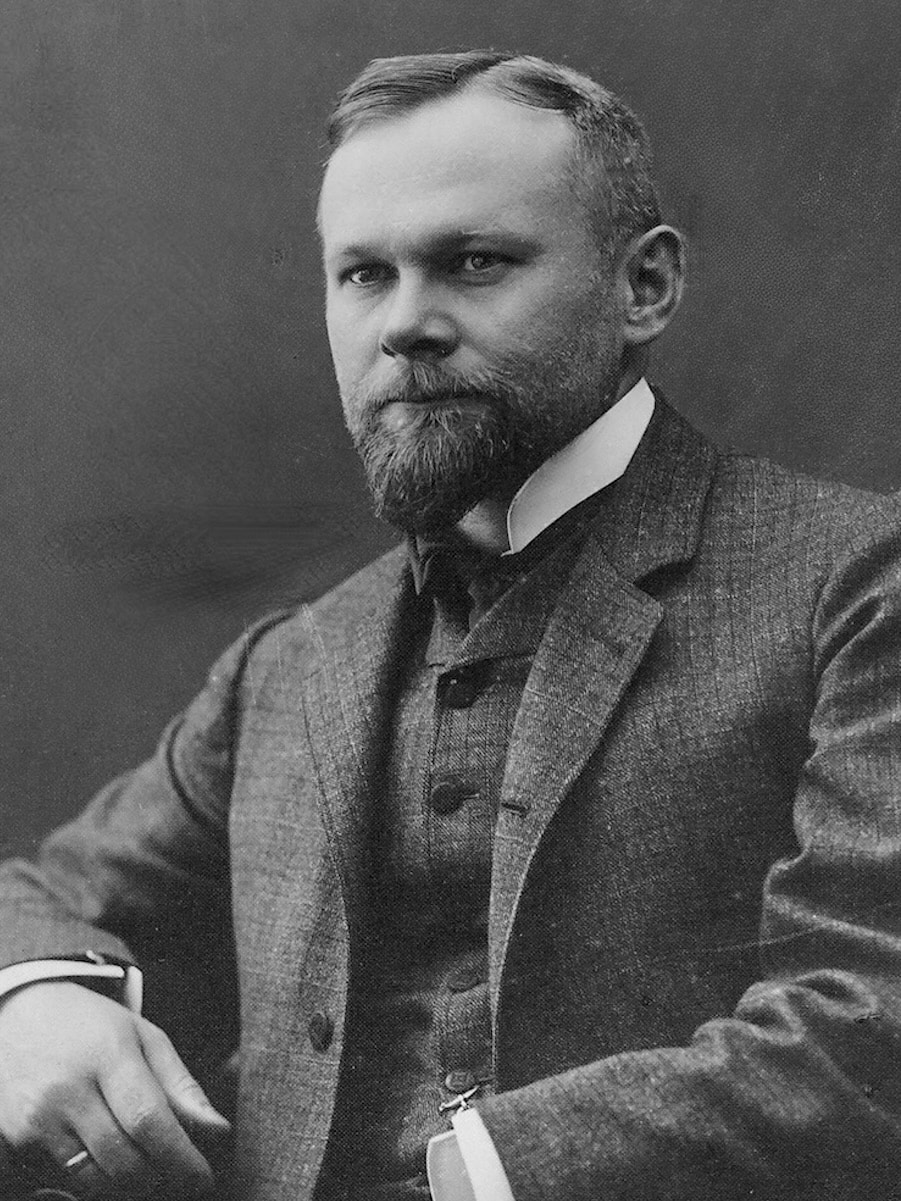Alexander Tietze

Alexander Tietze (1864-1927) was a German surgeon.
Tietze was a surgeon and civic leader in Breslau, best remembered for his 1921 description of the benign chest wall condition now known as Tietze syndrome. A dedicated clinician and academic, he trained under Jan Mikulicz-Radecki and became a key figure in the Breslau surgical school during a formative period in modern European surgery.
Tietze’s surgical interests spanned abdominal pathology, trauma, and emergency operations. His final years saw the publication of a highly regarded textbook on urgent surgical care. Beyond the operating theatre, Tietze served on the Breslau City Council during World War I and was active in public health reform.
Biographical Timeline
- Born on February 6, 1864 in Liebenau, Neumark (now Lubrza, Poland), then part of the Kingdom of Prussia.
- 1887 – MD from University of Breslau (University of Wrocław). Thesis Untersuchungen über das Blut des Fötus
- 1888-1895 Surgical assistant under under Hermann Fischer, then under Jan Mikulicz-Radecki (1850-1905) with whom he developed expertise in abdominal and emergency surgery
- 1894 – Habilitation thesis on intestinal incarceration Klinische und experimentelle Beiträge zur Lehre von der Darmincarceration.
- 1896 – Appointed head of the surgical department at Allerheiligen-Hospital (Breslau), a post he would hold until his death.
- 1914–1920 Served on the Breslau City Council, contributing to public health policy during and after World War I.
- 1921 – Identified and published on a benign, painful swelling of the upper costochondral cartilage without suppuration, Tietze syndrome.
- 1924 – Published Dringliche Operationen, a guide to urgent operative management, with contributions from contemporary surgical leaders.
- 1926–1930 Co-authored Die Chirurgie des Mastdarmes und des Afters with R. Reichle in the authoritative Die Chirurgie series.
- Died on March 19, 1927 in Breslau
Medical Eponyms
Tietze syndrome (1921)
Tietze syndrome is a benign, self-limiting condition characterised by painful swelling of the costochondral, sternocostal, or sternoclavicular joints most commonly the second and third ribs. It presents similarly to costochondritis, but with the distinguishing feature of localized swelling which is visible or palpable over the affected joint.
Most cases occur in younger adults under 40, with a slight female predominance. The pain is typically unilateral, sharp or aching in nature, and may be exacerbated by movement, coughing, or deep breathing. Unlike costochondritis, which tends to involve multiple costochondral joints without swelling, Tietze syndrome is more focal and visible.
It is considered idiopathic, though associations with repetitive minor trauma, respiratory infections, or excessive coughing have been proposed. Workup is primarily clinical, with imaging (ultrasound, MRI) used to rule out alternative causes. Management is conservative: rest, NSAIDs, reassurance, and in rare refractory cases local corticosteroid injection.
1921 – Tietze described the condition based on cases of painful, non-suppurative costochondral swelling. The publication established a distinct clinical entity from infectious or suppurative arthritis of the chest wall in Über eine eigenartige Häufung von Fällen mit Dystrophie der Rippenknorpel. The original description differentiated the condition from chest wall infections and malignancy.
Augenblicklich befinden sich in meiner Privatbehandlung drei Damen im Alter von 28, 42, und 50 Jahren, welche alle drei ein fast genau übereinstimmendes Krankheitsbild darbieten… Bei allen drei Damen hat sich im Laufe von einigen Monaten eine schmerzhafte Anschwellung der Gegend der oberen Rippenknorpel entwickelt, bei allen dreien auf der linken Brustseite.
Wir haben natürlich Röntgenbilder gemacht. Hier lässt sich ganz einwandfrei feststellen, dass der Knorpel der 1. Rippe gefasert, unregelmässig gestaltet, und anscheinend durch Kalkeinlagerungen verdichtet ist.
(Es) wurde eine Probeexzision vorgenommen. Prof. Hauser berichtet: histologische Untersuchung ergab Knorpelgewebe, dessen unregelmässige Anordnung für Tumorbildung spricht; für Malignität keine Anhaltspunkte.
In letzter Zeit sehr abgemagert, Ernährung in den Kriegsjahren der allgemeinen Lebenhaltung entsprechend. In letzter Zeit könne sie schlecht atmen, “es sei ihr als ob sie Asthma hätte, sie müsse immer so tief Luft holen.”
Ich stelle mir die Sache so vor, dass es sich um Ernährungsstörungen im Knorpel handelt, die zu Zerfaserungen und Kalkeinlagerungen führen und von reaktiven Schwellungen der Nachbarschaft begleitet sind.
At present I have under my private care three women aged 28, 42, and 50 years, each showing an almost identical clinical picture… In all three, over the course of several months, a painful swelling has developed in the region of the upper costal cartilages, in each case on the left side of the chest.
Naturally we took Röntgen pictures. Here one may easily note, that the cartilage of the 1st rib is stranded, irregular, and apparently thickened by calcium deposits
An excision biopsy was taken. Prof. Hanser reports: the histological examination demonstrates cartilaginous tissue, in irregular arrangement suggesting neoplasm, but without signs of malignancy, and showing patchy areas of calcium deposit and dissolution into fibres.
Major Publications
- Tietze A. Untersuchungen über das Blut des Fötus. Thesis 1887
- Tietze A. Beobachtungen an einem Falle von Multiplem Melanosarcom mit Melanurie. 1893
- Tietze A. Klinische und experimentelle Beiträge zur Lehre von der Darmincarceration. 1894
- Tietze A. Die Behandlung der chirurgischen Tuberkulose im Kindesalter. [Surgical treatment of childhood tuberculosis] Medizinische Klinik. 1908; 4(12): 391-398
- Tietze A. Die intrakraniellen Verletzungen der Gehirnnerven. Neue deutsche Chirurgie, 1916; 18(2)
- Tietze A. Über eine eigenartige Häufung von Fällen mit Dystrophie der Rippenknorpel. [About a peculiar accumulation of cases with dystrophy of costal cartilage] Berliner klinische Wochenschrift. 1921; 58(2): 829-831. [Tietze syndrome]
- Tietze A. Dringliche Operationen. Neue deutsche Chirurgie 1924; 32
- Tietze A. Über stumpfe Kopfverletzungen. Bruns’ Beiträge zur klinischen Chirurgie, 1926; 137: 523-610
References
Biography
- Alexander Tietze (1864-1927), Data BNF
- Bibliography. Tietze, Alexander. WorldCat Identities
- Tietze, Alexander by Raschkow, Natan, jun. (1842-1909). Library of the Wroclaw University
- Tietze, Alexander by Atelier N. Raschkow jr. Breslau – Library of the Wroclaw University, Poland
Eponymous terms
- Grodin L, Farina G. Tietze’s Syndrome in the emergency department: A rare etiology of atraumatic chest pain. Case Reports in Clinical Medicine, 2013; 2: 208-210.
- Mott T, Jones G, Roman K. Costochondritis: Rapid Evidence Review. Am Fam Physician. 2021 Jul 1;104(1):73-78.
Eponym
the person behind the name
MB BCh BAO, Queen’s Belfast. Recently moved to Australia, interested in Emergency Medicine, Medical Education and Paediatrics. Keen baker & tea drinker!
BA MA (Oxon) MBChB (Edin) FACEM FFSEM. Emergency physician, Sir Charles Gairdner Hospital. Passion for rugby; medical history; medical education; and asynchronous learning #FOAMed evangelist. Co-founder and CTO of Life in the Fast lane | On Call: Principles and Protocol 4e| Eponyms | Books |

